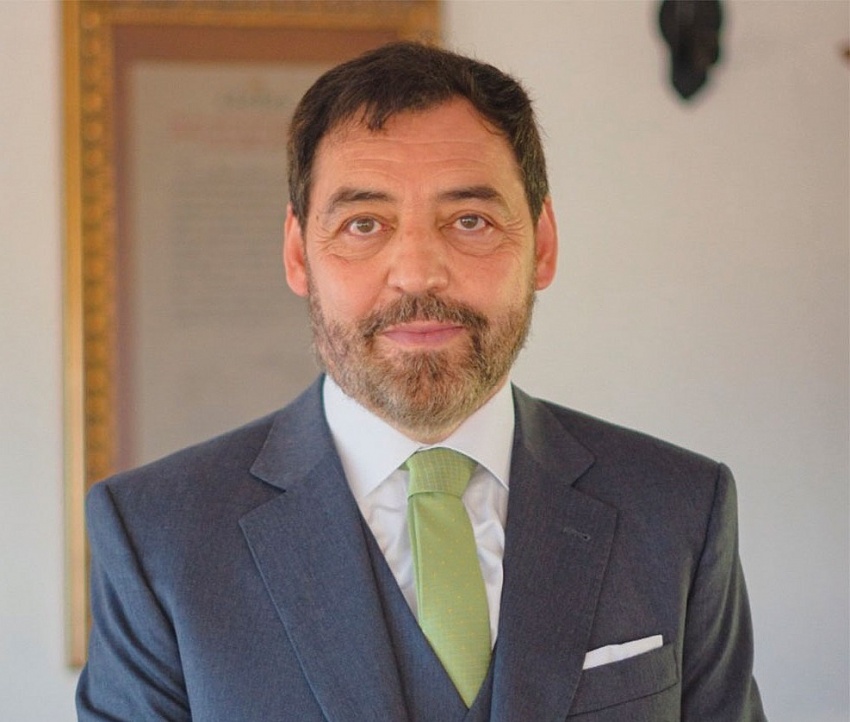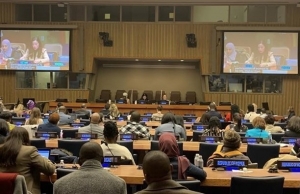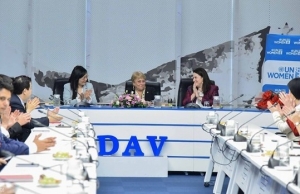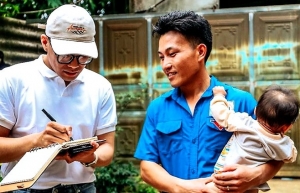Gender equality as a top priority for Vietnam’s sustainable development
The German government is actively supporting Vietnam in enhancing gender equality in the forestry sector through knowledge enrichment, investment, and innovative approaches. What approaches do you believe would be the most effective in achieving this goal?
 |
| Santiago Alonso Rodriguez |
The forestry sector is very important for Vietnam. Without enhancing the sustainability of forestry, the nation will not be in a position to reach its very ambitious goal of net-zero emissions by 2050.
We have been working for over 25 years in this sector. We currently have a broad portfolio of programmes worth $85.3 million, and gender equality has become more and more important in what we do.
We’re doing a lot to promote gender equality in the forestry sector in Vietnam. For example, helping and advising enterprises in gender-sensitive recruitment policies, supporting the Ministry of Agriculture and Rural Development and other authorities in elaborating action plans for closing the gaps, and also raising awareness about sexual harassment.
We are proud that we can support the Vietnamese government in this area because it’s essential for the sector and for the future of the country. It sounds very theoretical, but we believe that a society needs the strong participation of women, and if it’s there, a society will prosper and be more peaceful.
During your time in Vietnam, have you had any inspiring encounters with Vietnamese women in the forestry sector?
Yes, at a forum on promoting gender equality for sustainable forestry development in October, we found that there were many, many women who are excellent examples of how women can work in forestry and carry out very valuable work in many different areas.
For example, I met Be from a minority group, and a member of a village forest protection patrol team. She really cares about the sustainable management of forests and emphasised that she is ready to protect them for the entire village.
There are so many other examples. Someone who’s working in a nursery, somebody who is working in the administration of a forestry authority, somebody who is working for a private company that deals with timber products, and a young woman who works at the Forestry Research Institute. We have to make these women more visible because they are good examples for gender equality in the sector.
Why has the potential of Vietnamese women in the forestry sector not been fully realised?
We believe that women are the best promoters of sustainable development, and you can measure that in the programmes we finance. There are many studies all over the world showing that projects with the high participation of women in the agricultural sector are more productive than those without. It’s important that we use this potential in forestry.
As everyone knows, there are many barriers for women to succeed. For example, a young employee who’s working in a forestry enterprise told us that she had a baby, but there was nobody to care for her child, and it was difficult to stay at work. Women can do what men can do, but we have to create the conditions so that they can thrive.
What tools are required to improve this aspect for the forestry sector in Vietnam?
I can give you a very concrete example from Germany. One significant tool is to have gender representatives in place. We installed by law in all public administration gender representatives, who are elected only by the female employees of firms. Every hiring decision must receive approval from the gender representatives. That made it possible to implement our goals.
The gender representative must also approve each and every promotion made by an administration or even by the minister, and if there is a female candidate and a male candidate that are equal in qualifications, then the female candidate has to be given priority. These are the types of tools that allow for a significant change to occur in a relatively short period of time.
In the forestry sector, some jobs are considered unsuitable for women. What would you advise here?
In fact, in Vietnam, many women are working in the construction of houses. We have a construction site near my house, and every day I see women working there, carrying out jobs just like the men would.
The stereotype that women are not strong enough is just not true. From experience in Germany, we know that women can do what men do. You have to give the women the opportunity to work in areas where they are not represented. At the same time, we have to ensure responsibilities at home are also shared equally.
Here in Vietnam, women show that they can do so much – they care for their family and work too. Equal access to opportunities and participation, and sharing family responsibilities, would further enhance gender equality. Vietnam has some strong policies in place, so let’s implement them fully.
 | Vietnam highlights digital technology application for gender equality at UN session The application of digital science and technology towards the goal of gender equality requires political will and real actions of governments and the willingness to transform of relevant sectors in society, affirmed a Vietnamese official. |
 | Former Chilean leader talks about gender equality with Vietnamese diplomats, students Former President of Chile Michelle Bachelet Jeria, who is also former UN High Commissioner for Human Rights and former Executive Director of UN Women, met with female diplomats and students of Vietnam on April 3 to talk about the role of women leaders in multilateral organisations along with diplomatic, political, and social activities. |
 | Field trips for young journalists aimed to promote gender equality To find and communicate positive lessons to promote gender equality in the community, 20 young journalists have participated in two field trips to Van Ho district in the northern province of Son La. |
 | National action month on gender equality launched The National Action Month on Gender Equality and Gender-based Violence Prevention and Response was launched on November 10 by the Ministry of Labour, Invalids and Social Affairs (MoLISA), in collaboration with the United Nations Office in Vietnam and the national flag carrier Vietnam Airlines. |
What the stars mean:
★ Poor ★ ★ Promising ★★★ Good ★★★★ Very good ★★★★★ Exceptional
Related Contents
Latest News
More News
- Ho Chi Minh City launches plan for innovation and digital transformation (February 25, 2026 | 09:00)
- Vietnam sets ambitious dairy growth targets (February 24, 2026 | 18:00)
- Masan Consumer names new deputy CEO to drive foods and beverages growth (February 23, 2026 | 20:52)
- Myriad risks ahead, but ones Vietnam can confront (February 20, 2026 | 15:02)
- Vietnam making the leap into AI and semiconductors (February 20, 2026 | 09:37)
- Funding must be activated for semiconductor success (February 20, 2026 | 09:20)
- Resilience as new benchmark for smarter infrastructure (February 19, 2026 | 20:35)
- A golden time to shine within ASEAN (February 19, 2026 | 20:22)
- Vietnam’s pivotal year for advancing sustainability (February 19, 2026 | 08:44)
- Strengthening the core role of industry and trade (February 19, 2026 | 08:35)

 Tag:
Tag:



















 Mobile Version
Mobile Version